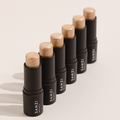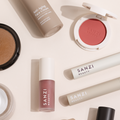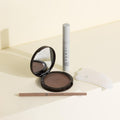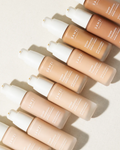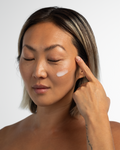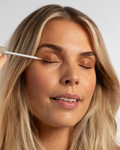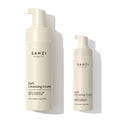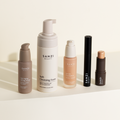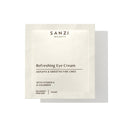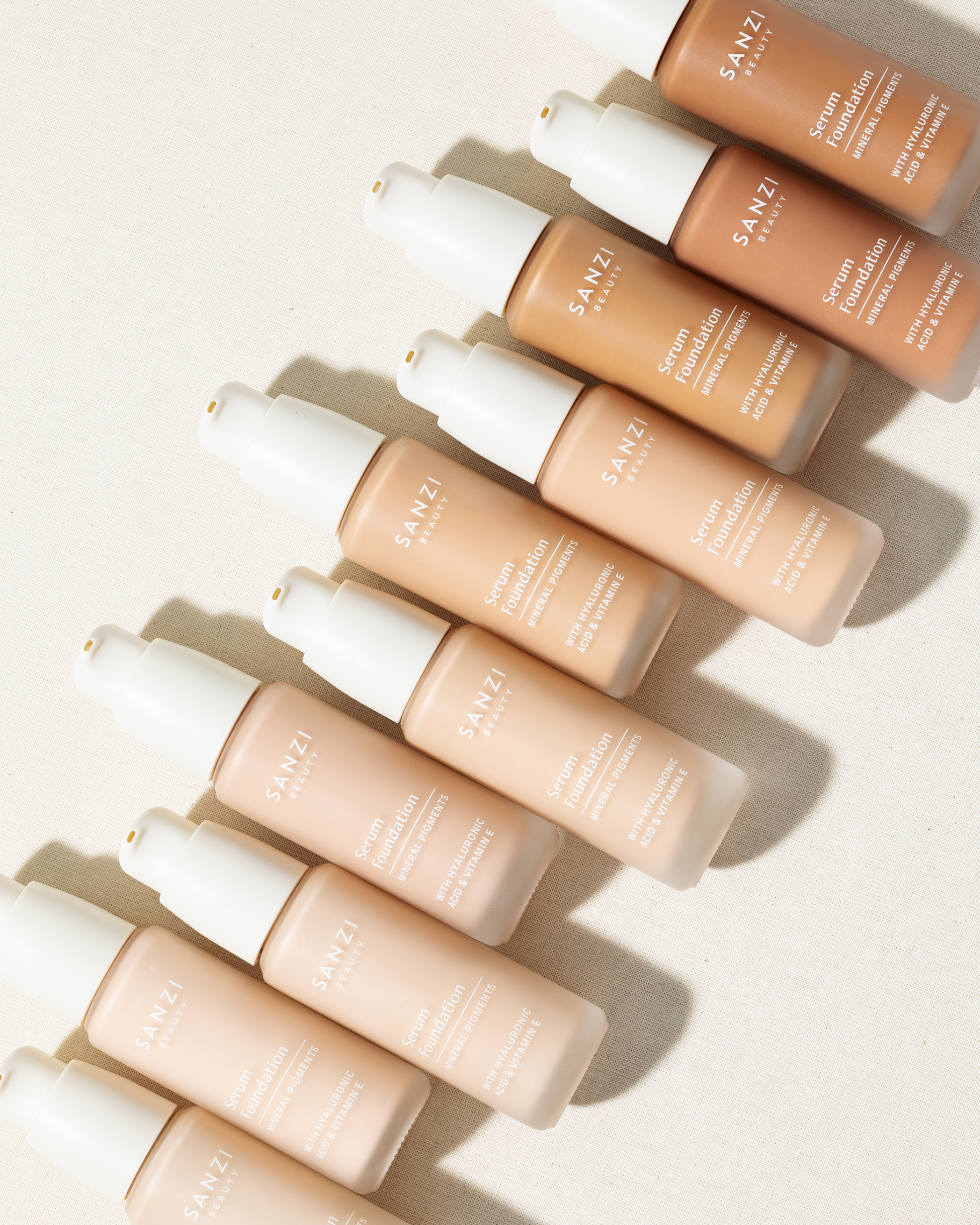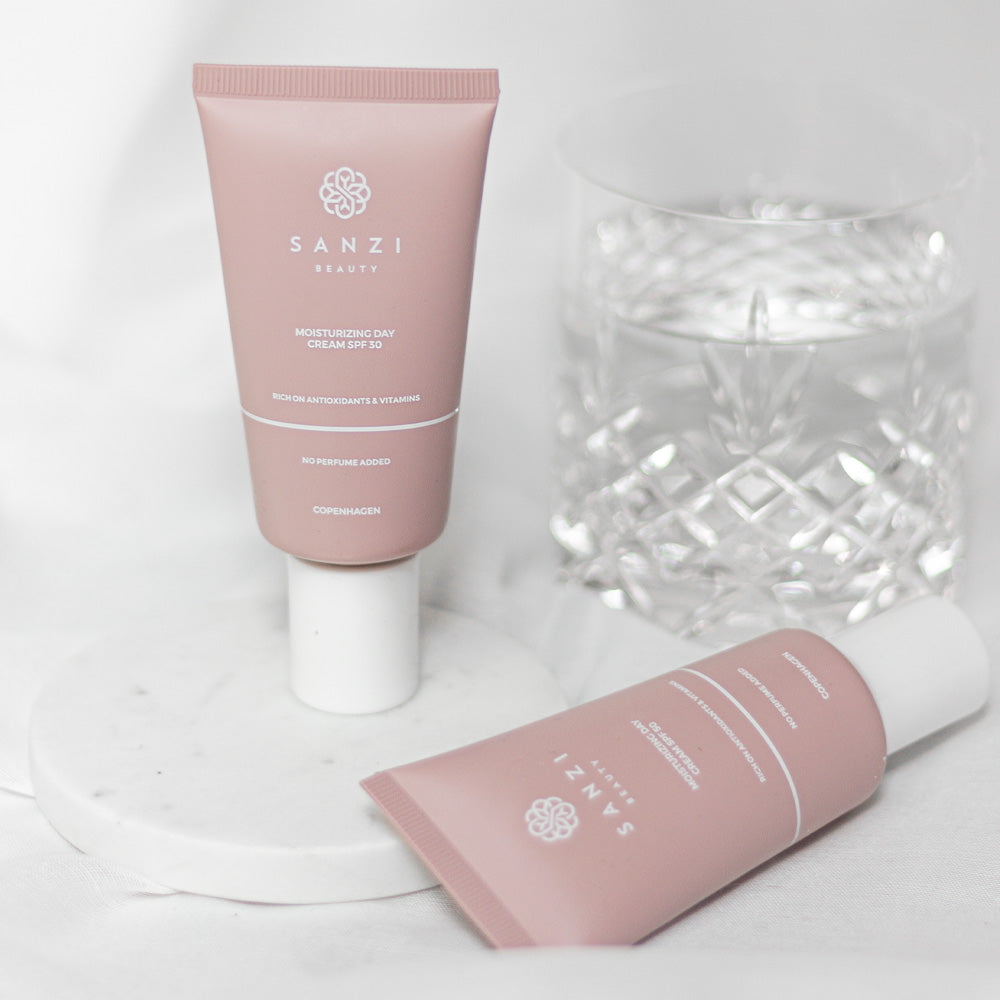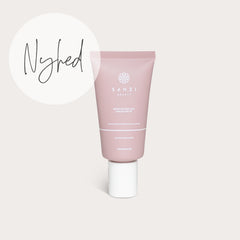Melasma, dark spots or sun damage – hyperpigmentation is known by many names. But what they all have in common is that when you get them, you have no doubts. The dark spots on the skin can cause one's otherwise nice skin to appear very uneven and uneven - with larger or smaller dark patches around the face (or body).
The good thing, however, is that hyperpigmentation is a skin condition and therefore not a skin type that you are born with. Therefore, there are also opportunities to create an improvement with the right products and the right routines.
So even though the dark spots on the skin may seem completely impossible to get rid of, there are actually some measures you can use to fight your hyperpigmentation.
The cause of hyperpigmentation
The dark spots result from an irregular production of melanin in the skin. Melanin is the brown or red pigments in the skin and with irregular production, you find that the pigments clump together and give these dark spots on the skin. But you are far from alone in the dark spots. They often affect women (actually 10 times more often than men), so you are far from alone in the fight against your hyperpigmentation!
There are basically three categories into which hyperpigmentation can be divided:
Melasma, which is often caused by hormonal changes – for example during pregnancy.
Post-inflammatory hyperpigmentation which are dark spots after acne and scars.
Sunspots or sun damage which occur after too much sun exposure without the right protection.
What the three categories have in common, however, is that they can all seem equally irritating to those of us who dream of an even and uniform skin tone.
Skincare that fights hyperpigmentation and melasma
But what can you do when you have dark spots on your face? Hyperpigmentation can seem like a long, tough battle to fight. But there are actually several active ingredients you can use in your skin care routine, which with effort can make a clear visible difference.
Niacinamide (vitamin B3) against pigment changes
Niacinamide (vitamin B3) is one of the most effective ingredients when it comes to the fight against hyperpigmentation. There is research that shows an effect with a content of 4% niacinamide – our Anti-Aging Face Cream contains 6%, and is therefore obvious to use if you experience hyperpigmentation. The advantage of niacinamide is that it is incredibly gentle to use and there will therefore be much fewer side effects on the skin. For example, niacinamide does not make the skin photosensitive, which means that you do not become extra sensitive to the sun, which can thereby give you even worse hyperpigmentation.
Fight sun damage with vitamin C
Vitamin C prevents melanin production and can therefore help limit hyperpigmentation in the skin, while also having a brightening effect on the skin, which makes the skin appear more uniform (and more glowing). You will find vitamin C as one of the core ingredients in our Anti-Aging Lifting Serum, where you will also find vitamin E, which enhances vitamin C's effect on hyperpigmentation. Use it together with Anti-Aging Face Cream for an effective skin care routine against the dark spots on the face!
Exfoliate your skin with a mild acid for more even skin
The final step to combat hyperpigmentation is a gentle chemical exfoliation, which gently removes dead skin cells, leaving the skin more even and with more glow. Alpha hydroxy acid ingredients (AHA) in particular are good for reducing pigment changes, as they are both gentle and effective.
In our AHA Peeling you will find lactic acid and mandelic acid, both of which are recognized to minimize hyperpigmentation by helping with the replacement of skin cells – where the pigment changes are in the old skin cells, which is replaced with new uniform skin cells through the exfoliation When using chemical exfoliation, however, you must be aware that your skin becomes more sensitive to light - and therefore it can be a really good idea to use these products in the evening and remember your sun protection all year round, so as not to make the hyperpigmentation worse instead of better.
The most important thing about using skin care to fight hyperpigmentation, however, is that you have to be patient. Where the dark spots can appear in an afternoon in the sun, it will often take much longer to combat them - no matter which method you choose.
How to prevent hyperpigmentation
But when it takes a long time to combat one's hyperpigmentation, you can go a long way by preventing the problem. So although not all forms of hyperpigmentation can be prevented, you can help yourself a lot by using a good sunscreen. Preferably all year round! The sun's rays are one of the worst culprits when it comes to dark spots on the skin.
Therefore, one of the most important skin care products in the fight against hyperpigmentation is a sunscreen. You can read our guide to how and how much sunscreen you should actually use right here.





